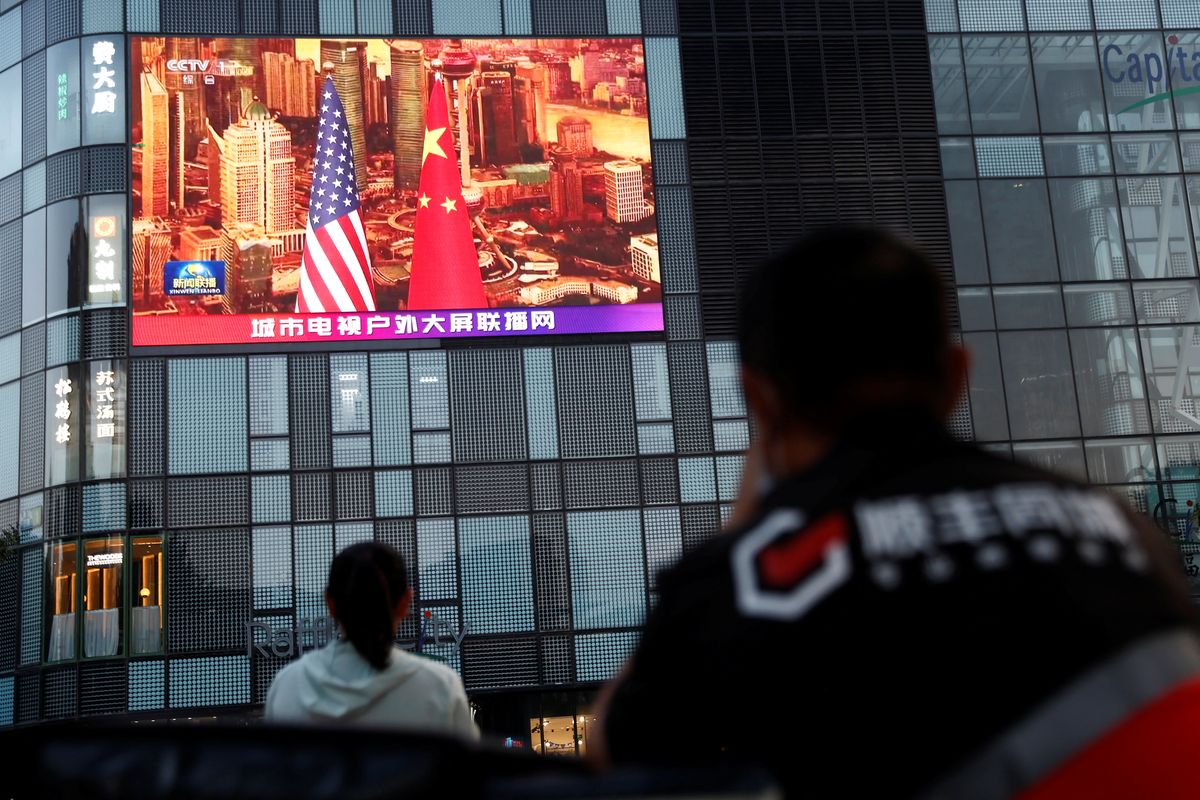President Xi speaks on China’s carbon emissions
China and the US are both experiencing historic heat waves at the moment, which is seen as a consequence of climate change.

A few minutes every morning is all you need.
Stay up to date on the world's Headlines and Human Stories. It's fun, it's factual, it's fluff-free.
The backstory: China and the US are both experiencing historic heat waves at the moment, which is seen as a consequence of climate change. Both countries, which are major carbon emitters, actually agree that they should work together to fight against climate change. There are just a lot of snags in cooperation because of ongoing tensions between them. According to the Global Carbon Budget, China releases 31% of the world’s carbon dioxide (CO2), and the US is responsible for 14%.
The US has been asking China to slow its development of coal-fired power plants and make plans for slashing methane, but changing the whole power system in the country is complicated. And China wants to protect its energy security and also make sure the US won’t back out of its own climate promises.
More recently: Last week, the Chinese government announced it would be pushing even harder for power system reforms and shining a bigger spotlight on cutting national carbon emissions. This week, the US special presidential envoy for climate, John Kerry, arrived in China for a four-day visit to talk about how the two countries can cooperate in fighting climate change.
During his visit, Kerry met with the Chinese representative on climate change, Xie Zhenhua, Premier Li Qiang and top diplomat Wang Yi to discuss climate plans. Apart from trying to reach an agreement in terms of environmental moves, Kerry’s visit is also a way for the countries to defrost the tension that’s grown between them recently. Kerry and Li both called for the US and China to work together to stick to the pledges made at the 2015 Paris agreement to limit global warming.
The development: On Monday, China’s President Xi spoke to officials at a national conference on ecological and environmental protection. During his speech, Xi said that the country’s plans for cutting carbon emissions should be decided by China, not anyone else. Xi also said it’s important for China to protect ecological security and nuclear and radiation safety to “ensure that the natural environment and conditions, which are the foundation of survival and development, are not threatened or damaged.” He called for collaborative legal, market, technological and policy action to work toward these goals.
Key comments:
“China’s commitments are unswerving, but the path towards the goals as well as the manner, pace and intensity of efforts to achieve them should and must be determined by the country itself, rather than swayed by others,” China’s President Xi Jinping said. “[We should] actively and steadily work toward carbon peaking and carbon neutrality, foster a clean, low-carbon, safe and efficient energy system, accelerate the formation of a new power system and strengthen the country’s capability of guaranteeing oil and gas security.”
“Climate should be free standing, because it is a universal threat to everybody on the planet,” John Kerry told China’s vice president, Han Zheng, on Wednesday.
“We’re not involved in dictating anything to anybody; we’re involved in following the science,” Kerry said to reporters on Wednesday. “None of the leaders I met with suggested there was any reason we shouldn’t be coordinating the way we are, working together in the way we are.”




Comments ()